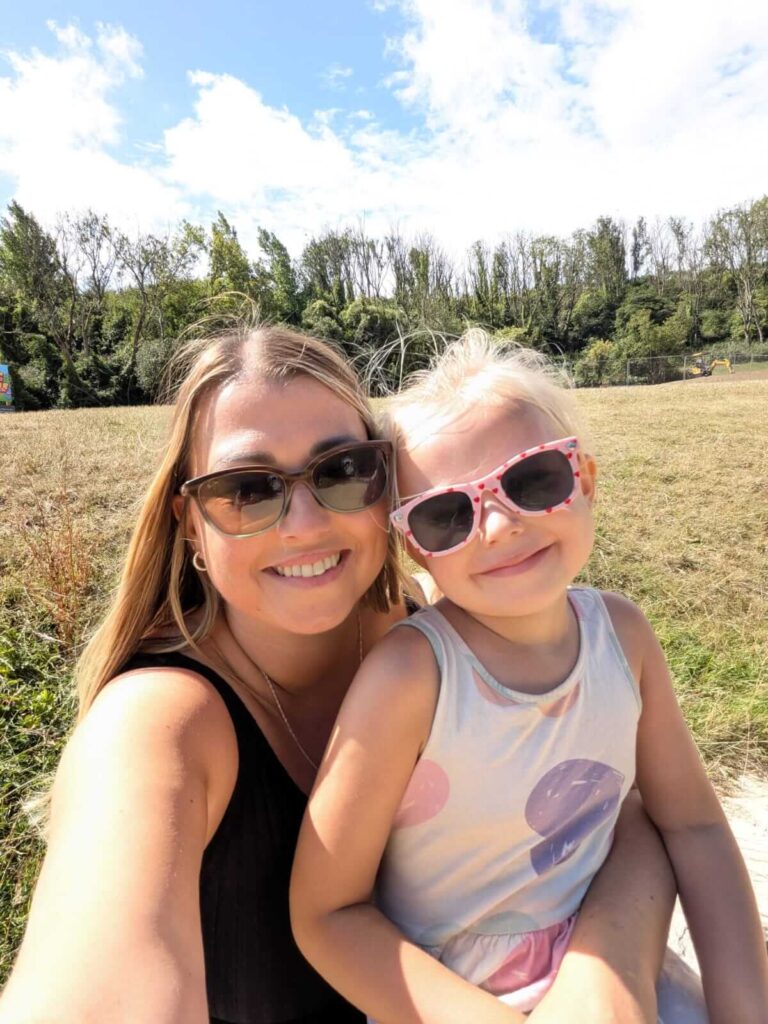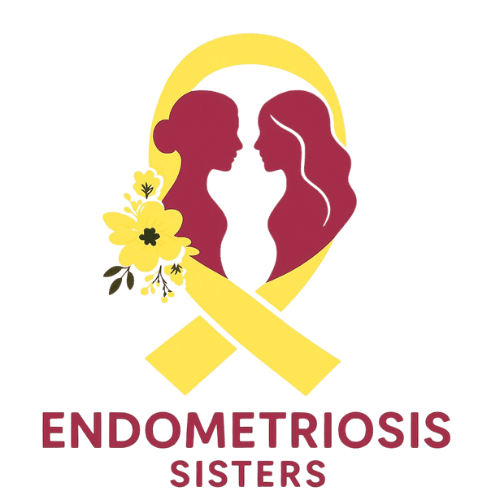“Between then and age 29, I had 12 ultrasound scans. Every time, I was told everything looked “totally normal.””
This is Charlie's Story.
My story is a little different from most people with endometriosis. I’m sharing it in the hope that it helps others who don’t have the “typical” symptoms to keep pushing for answers—just like I did.
Early Symptoms
Growing up, my periods were fairly normal. They started when I was 10—some were heavy and painful, others manageable. But by age 12, I began experiencing stomach cramps that felt like something was tugging me from the inside. Thanks to my dad’s private medical insurance, I was seen at the Spire in Bristol. After some unusual visits, I was told I had a trapped nerve in my stomach. I received an injection to relieve it and was sent on my way.
Between then and age 29, I had 12 ultrasound scans. Every time, I was told everything looked “totally normal.”
Pregnancy and Postpartum Changes
At 29, I was lucky enough to fall pregnant with my daughter. The pregnancy was awful, and the birth ended in an emergency c-section. That’s when things really started to spiral.
I began experiencing constant stomach pain, couldn’t sit for long periods, and had a heavy, aching sensation in my lower back and legs. Then came heart palpitations, severe acid reflux, and episodes of fainting while trying to go to the toilet.
The Search for Answers
In early 2024, my periods suddenly stopped. I ended up in hospital with unbearable stomach pain and was diagnosed with appendicitis. I had surgery the next day, but was discharged within an hour of waking up—with no confirmation that it was actually appendicitis.
The pain returned the next day, and I was back in A&E. A doctor noted an “unusual amount of adhesions” and suggested they might be causing my pain. I was sent home with morphine.
Over the next few months, I had blood tests for early menopause—all normal. Doctors suspected IBD and thought stress had stopped my periods. I was referred for Crohn’s testing, but by August 2024, all results came back normal and I was discharged from Gastro.
Diagnosis
One day, while walking during lunch, I stumbled across a podcast about endometriosis. I started researching obsessively and became convinced I had it. I went to my GP, but was dismissed—my symptoms didn’t match the “typical” endo profile.
Fortunately, my workplace had just introduced private healthcare. I signed up and saw a private gynaecologist within two weeks. After internal and external exams, he suspected endometriosis and booked me for an MRI.
Seven days later, I had my results: Stage 4 Deep Infiltrating Endometriosis (DIE).
Here’s what the MRI showed:
- Enlarged uterus
- Endometriosis throughout the rectovaginal septum, uterosacral ligaments, and both ovaries
- Nodular thickening on the right uterine ligaments
- High volume of endo on the front wall serosa of the uterus
- Nodules in the right parametrium
- Bladder stuck to the womb
- Tethering of the rectovaginal septum
Due to the severity, my consultant couldn’t perform surgery and referred me to an NHS specialist centre with an MDT team. I was given the NICE guidelines for treatment and sent on my way. After pushing my GP, the referral was finally made in November 2024. I’m now on the waiting list for surgery.
Treatment Attempts
Since my diagnosis, I’ve tried:
- Dienogest
- IBS medication
- Laxatives (to rule out bowel-related symptoms)
- Prostap (chemical menopause)
None of these have helped. In fact, things have worsened over the past year.
Current Symptoms
- Sudden, intense lower stomach cramps
- Persistent lower back pain
- Leg pain that limits walking or standing
- Pressure-like stomach pain when sitting
- Fatigue that nothing relieves
- Urgency to urinate with little to no warning
- Upper stomach bloating (unusual for endo)
- Constant nausea (managed with anti-sickness meds)
- Reflux and gas (on Omeprazole)
- Heart palpitations
Final Thoughts
My story is different. I’ve never had periods that made me bedbound. I truly believe my c-section aggravated my endometriosis and triggered this journey.
I’m sharing this to show that endometriosis symptoms vary from person to person. Just because your symptoms don’t match the textbook definition doesn’t mean you don’t have it. Push for answers. Trust your instincts.
Hopefully, I’ll have surgery by the end of the year and find some relief. Until then—keep going, endo warriors!


